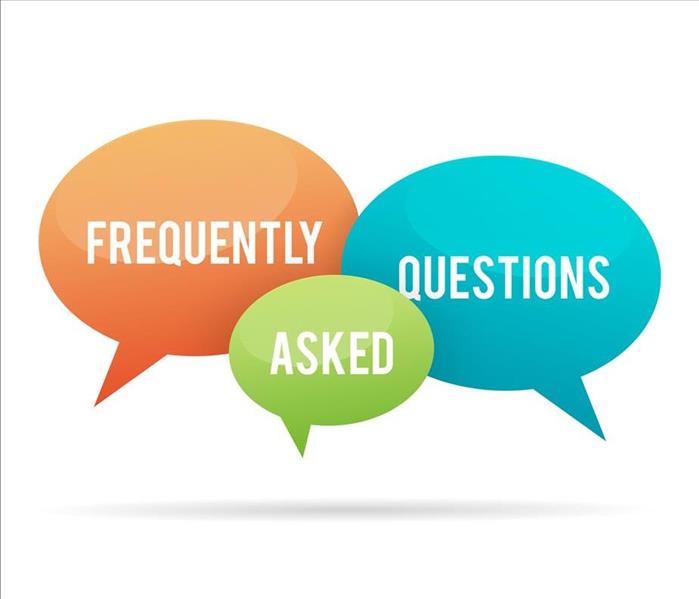Mold FAQs
11/19/2021 (Permalink)
One of the most common problems property owners experience is mold growth. However, many people are not familiar with why mold becomes a problem or how to get rid of it.
Mold Growth Frequently Asked Questions
These are some of the most frequently asked questions property owners have about mold.
1. How Are Mold and Mildew Different?
Mildew is a term for specific kinds of mold or fungus and usually refers to types of molds that have a flat growth habit. Mold includes all types of microscopic fungi that grow as multicellular filaments. Molds can grow on any type of organic material, while mildew usually grows on windowsills, shower walls, and other areas with high humidity.
2. How Can I Eliminate Mold?
Mold is always in the environment, so you can't completely eliminate it. However, you can reduce the amount of mold on your property by controlling moisture levels. When you discover mold, it is important to clean it promptly and dry out areas with water damage within 24 to 48 hours. Consider hiring a mold remediation company in Rocky Mount, NC, to ensure this process is completed promptly and thoroughly.
3. Do I Need To Test for Mold?
In many cases, if you can see that you have a mold problem, you do not need to test for it. However, sometimes mold testing may be useful for determining how effective cleanup efforts have been. Mold testing may also be needed for detecting hidden mold problems. However, it is recommended that you hire a professional, rather than purchasing a do-it-yourself test kit. These kits may not always produce accurate results and inexperienced users can accidentally spread mold by disturbing spores.
4. Does the Government Regulate Mold?
There are no current guidelines from the Environmental Protection Agency or any other federal agency regarding airborne concentrations of mold or mold spores.
5. How Can I Control Moisture Levels in My Buildings?
Fix plumbing, appliances, roofs, or equipment that is leaking. If water is seeping into your building from the outside, consider waterproofing your building, changing your landscaping to direct water away, and repairing any cracks or other damage that allows water to penetrate your building. Use exhaust fans in kitchens, bathrooms, and other areas that generate steam. Vent driers to the outside in laundry rooms. Use dehumidifiers and air conditioners to control humidity during the summer.
6. Can Ultraviolet Lamps Be Used To Kill Mold?
Some molds can be killed by a properly designed ultraviolet germicidal irradiation cleaner. However, cleaners designed for home use are often ineffective. Only cleaners designed for commercial use should be employed for mold control.
7. What Does Mold Smell Like?
Because mold often grows in hidden areas, the first sign may be the smell. Mold odors are produced by the release of substances called microbial volatile organic compounds. Mold smells are often described as being musty in nature.
The more you know about mold, the easier time you will have identifying and resolving mold growth problems in your buildings. However, even property owners who are very knowledgeable on the subject can benefit from professional assistance when mold testing or remediation is needed.




 24/7 Emergency Service
24/7 Emergency Service
